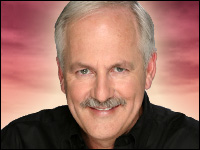
The entire future of a company or industry can hinge on one little deal. The US$50,000 IBM paid to license Windows was the foundation for Microsoft and the technology industry for the last couple of decades. Apple’s licensing contract with Portal Player to create the iPod was nearly as big — and certainly huge for that company. The sale of 3Par could also be one of those pivotal deals, as huge firms like HP, IBM, Oracle, Microsoft, Dell, VMware, Cisco and EMC position themselves around the new “cloud” opportunity.
I find it interesting to note that were Microsoft to be offered another IBM-like deal, or Apple a Portal Player offer, both companies would likely refuse, which is why huge opportunities rarely strike mature companies. Let’s explore the drama of 3Par this week and why it may be pivotal to both HP and Dell.
I’ll close with my product of the week, a networking solution from Western Digital, of all places, that will help you get a fast-enough network to your soon-to-be-network-capable TV or Apple TV box. (Nice job, Apple!)
3Par: HP’s Pyrrhic Victory?
A Pyrrhic victory is one in which the cost of the win likely exceeds the reasonable cost of the loss. HP can certainly afford 3Par, but as I’m writing this note I’ve had three calls from folks who are concerned about the number of people HP has lost since the Palm acquisition. With HP’s industry-low employee satisfaction scores, a software company that is mostly valued by its people is an incredibly risky buy in a competitive market, because the loser can often recruit the core talent out of the company at a fraction of the price.
For instance, 3Par will cost HP around $2.7 billion — or about $1 billion more than the analysts who set the initial price for the company thought it was worth. As part of this deal, HP has to give Dell $72 million, because Dell had already entered into a contract with 3Par that had an exit penalty. Initially, HP will basically buy a company for $2.7 billion with an ROI (return on investment) optimized for around $1.8 billion, and Dell gets a profit of $72 million for doing nothing.
If you were bidding for, say, a Ferrari, this would be like paying $400 million for a car whose market value was estimated at $200 million and paying the second-highest bidder $10,000 just for showing up. The chances of the property — assuming the folks doing the analysis did their job — ever being worth what HP paid are remote, and Dell now has $72 million and the $1.8 billion they saved to recruit 3Par’s core employees.
In a company like 3Par, there are about 40 core employees, and at an estimated $5 million each for litigation costs and penalties paid to HP, Dell could likely get them for about $200 million — or a fraction of what they would have paid for the entire company. Granted, the intellectual property would remain with HP, but this would turn 3Par into a shell that HP paid $2.7 billion for and create a foundation for a “Dell wins and HP loses” story.
Mark Hurd Backstory
At the core of the problem for HP is its ex-CEO, because his departure timing screwed up the company’s initial bidding for 3Par, allowing Dell to win the first round and resulting in a bidding war. Had HP been able to respond powerfully enough initially and win that round instead of Dell, Dell would have been less likely to respond, and the final bid would have more likely ended up closer to the $18 per share initial valuation for the company.
In addition, the risk of employee loss is tightly tied to Mark Hurd’s sacrifice of employee loyalty for short-term economic results — he made record layoffs while there — is what gave HP the lowest-measured employee satisfaction and loyalty in the industry. This is what likely goes to the core of the massive bleeding coming out of Palm, and why that company appears to be turning into a shell that is worth a fraction of what HP paid for it.
In addition, Hurd’s massive cuts in R&D are what probably made HP late to the game with respect to even looking at a technology company like 3Par as IBM, which has retained a higher percentage of its R&D, was able to buy similar XIV for a fraction of what HP paid for 3Par. The IBM investment is rumored to have already doubled in value.
It is amazing to realize that Hurd, who had been thought to be HP’s most successful CEO ever, may actually eclipse Carly Fiorina as the least successful CEO in HP’s history. Given there are supposedly a number of financial analysts suggesting Dell hire him (Michael Dell isn’t that stupid), it puts an exclamation point behind a building backlash against CEOs like Hurd, who seemed to be laying off employees simply to better assure their own income.
As a side note, it is truly amazing how quickly Mark Hurd changed from hero to villain.
HP and Dell at the Crossroads
HP has to fix the problems Mark Hurd created. Otherwise, it is simply wasting massive amounts of money acquiring firms and then bleeding the very people it thought it was buying to competitors. Turning HP back into a great place to work should have preceded the acquisitions of Palm and 3Par, and this now needs to be HP’s highest priority.
The only way 3Par can be worth what HP paid is if it can hold onto the key assets. HP’s founders, were they still alive, would no doubt argue those assets are the people, not the IP they created, because this is a changing world. In short, if HP can’t become a great place to work again, its future is far from certain — and acquisitions like 3Par are pointless rather than strategic.
For Dell, this outcome provides a moment of pause, because as HP and other firms go down a solutions path, there emerges an alternative of better partnering with Microsoft to create competitive offerings. Dell can’t hope to match HP in software — let alone IBM or Acadia — but Microsoft exceeds the capabilities of all three entities combined if it can be made into a better partner.
If Dell and Ballmer can hatch a partnership that rivals Acadia, the result could be the most powerful in the market — but it would require commitments from both that exceed what either has been willing to offer in the past.
In the end, HP and Dell (and Microsoft) are at a crossroads. Each can drive a more powerful future if the right decisions are made.
Product of the Week: Western Digital Livewire
 With Apple’s announcement of its new Apple TV last week, we are increasingly finding the need to hook up a network for our TV, but WiFi networks simply don’t have enough bandwidth to move HD programs in real-time. I know, because I have four HD TiVos, and getting a program from one to the other wirelessly can take a lot longer than the program runs — and that’s if no one else is on the network. Pulling wires often means opening up walls, ceilings or floors, or entering crawl spaces occupied by creatures that don’t want to be disturbed, like mice, rats or spiders (not a huge fan of any of these).
With Apple’s announcement of its new Apple TV last week, we are increasingly finding the need to hook up a network for our TV, but WiFi networks simply don’t have enough bandwidth to move HD programs in real-time. I know, because I have four HD TiVos, and getting a program from one to the other wirelessly can take a lot longer than the program runs — and that’s if no one else is on the network. Pulling wires often means opening up walls, ceilings or floors, or entering crawl spaces occupied by creatures that don’t want to be disturbed, like mice, rats or spiders (not a huge fan of any of these).
While there are several products that move Ethernet over power lines like the Livewire product does, Livewire is the only one I’ve found that has four ports, and you’ll quickly find that products like TiVo, Apple TV, Google TV, Blu-ray players, and receivers with Internet radio options all need a network connection, so one just isn’t enough.

This product costs about $104 to $139 (you can pre-order it on Amazon for $104 or buy it now at wdstore.com for $139), and it is a quick fix for those who need a faster connection than WiFi provides and don’t want to open up walls or meet the critters that live in the dark.
As a result, Livewire from Western Digital is my product of the week (and I’m using this myself because I don’t want to know what’s under my floors).
Rob Enderle is a TechNewsWorld columnist and the principal analyst for the Enderle Group, a consultancy that focuses on personal technology products and trends.






















































The license Microsoft purchased from IBM was DOS not for Windows.
you’ve made two points in this article that I agree with completely.
First, that 3PAR’s value IS its people. I would extend that notion to say that the real value of ANY company is in its people, not in its IP or tucked away in some information repository as some might believe.
Second, that HP has a serious people problem. Executive managers like Hurd routinely pay lip service to the value of employees, yet drive them away or throw them under the bus on a regular basis. Hurd was, in my opinion too, no better than Fiorina